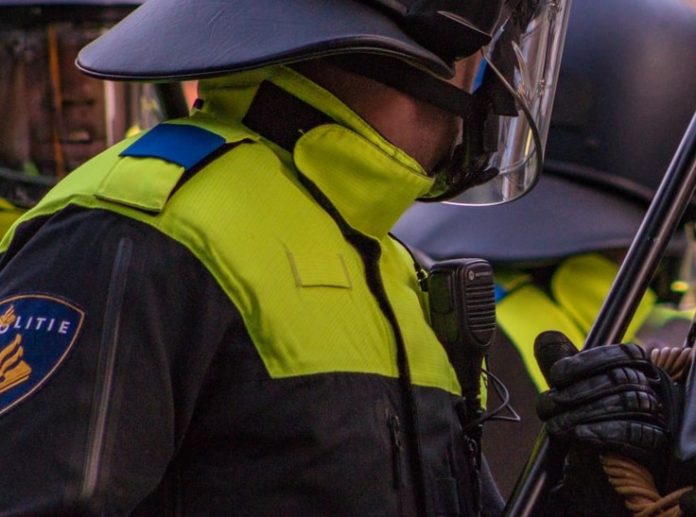Police arrested two men in Zoetermeer and The Hague yesterday after receiving a tip-off that the men were planning a terrorist attack. The men are accused of preparing to carry out an attack by the end of year.
It remains unclear who, or what, the intended target was going to be. However, it is thought the suspects were planning on using bomb jackets, and at least one car bomb.
The suspects, a 20-year-old Dutch citizen and 34-year-old Iranian, are both from Zoetermeer. A spokesperson for the Public Prosecution Service (OM) told NOS that the men were preparing for the attack by learning to create bombs.
Dit zijn beelden van de actie waarbij een terreurverdachte is opgepakt in Zoetermeer. Ook in Den Haag is een verdachte aangehouden. pic.twitter.com/za6xLpA5pT
— Omroep West (@omroepwest) November 26, 2019
Valuable tip-off
A tip from the Dutch intelligence service AIVD that the pair wanted to commit a jihadist attack came at the beginning of October. It led to the arrests yesterday. The delay in arresting the suspects was to gather incriminating evidence against them, says Annemarie van Weert, a researcher at the Hogeschool Utrecht.
“What I hear is that proper research is done to collect evidence. This is very important in these kinds of arrests, because there has been no crime committed yet,” said van Weert to Nieuws en Co.
“Apparently [the police] had information that the attack was planned for the end of the year. That meant they still had time.”
The official tip was about the two individuals, not about a larger network, confirmed the OM spokesperson.
Gathering evidence through infiltrators
Police planted two infiltrators tasked with gaining insight into the suspects and their plans of committing an attack, said the OM office.
Special investigative tools were also used to gather evidence. However, the OM office would not confirm exactly which tools were utilised. They did confirm that the tools generally include observations or telephone tapping.
These special tools are just one way the Netherlands has moved ahead of the rest of the world in legislating investigative means, says criminologist van Weert. “That has to do with a shift to an anticipatory legal system: we want to prevent and not be late.”
Public arrests and a hidden room
One man was arrested from his car in The Hague, while the other was arrested at his home in Zoetermeer while neighbours watched. The arrests were conducted by the anti-terrorism unit of the police, the Special Interventions Service.
A search conducted of one of the suspect’s homes found a hidden room with a hatchet, a dagger, and a mobile phone with sim cards. Thankfully, no explosives, raw materials or firearms were found in either of the house searches.
We’re thankful the police did such a great job foiling the terrorist attack. What do you think of the arrests? Tell us your thoughts in the comments below.
Feature Image: Ben Koorengevel/Unsplash


